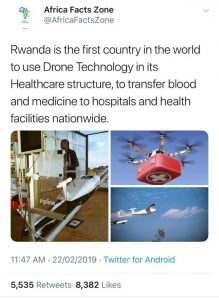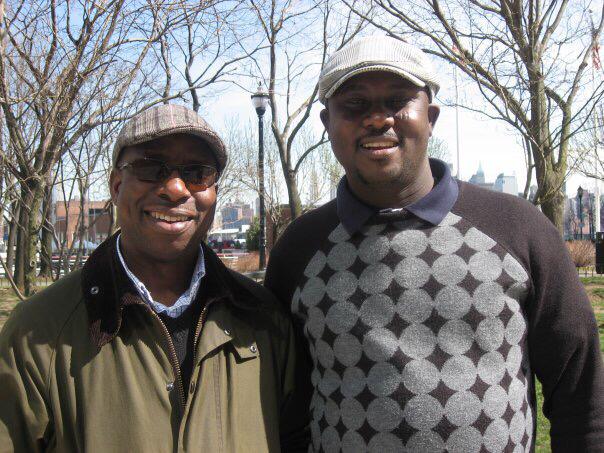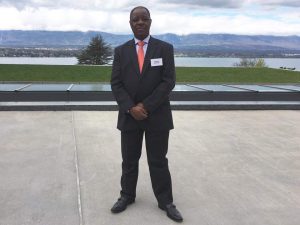
The late Amb Bashua
Two Nigerians have now been confirmed to have perished in the Ethiopian airliner that crashed shortly after take off from Addis Ababa on its way to Nairobi in Kenya earlier this morning. One is Professor Pius Adesanmi while the other is Ambassador Abiodun Bashua. While Adesanmi is an academic and public intellectual of note, the diplomatic establishment is immersed in mourning the retired Nigerian Ambassador. He is the other Nigerian passenger on board the ill-fated ET 302 to Nairobi. Amb Bashua was only last January nominated to serve as the Interim Chair of the Nigerian Community in Ethiopia. He had served the UN in various capacities before settling in Addis few years ago. He joined the Nigerian Ministry for Foreign Affairs as a career Diplomat in 1976.
What this means is that Nigeria has confirmed the loss of two in the crash. In this piece, Dr Ogaga Ifowodo provides an insight into Prof Pius Adesanmi. It reads:
What or who do I curse? The day? The plane? The makers of the new technology-driven plane on which my friend and my brother was flying from Addis Ababa to Nairobi? Ah, death! And the stealth and many ways it comes! But it should never ever have set its sights on Pius, again, having tried and failed last year. Ah, Pius, you survived that road accident, and marvelled that you did: “I still don’t know how and why I survived,” you wrote to me. And death shamed that you had proved stronger than it on the road stalked you in the air. Ah, Pius, Pius, my brother Pius . . . From the campus of the University of Ibadan, to the campuses of Penn State University, College Station, and Cornell University, Ithaca, New York, and that visit to Jersey City in 2007 when I was finishing my dissertation (here’s the photo of us together on the Hudson River Walk), and all the places too many where we were together alone or with mutual friends . . . I can’t bring myself to say rest in peace and yet I must wish your restless, fecund, passionate and patriotic (how much you ached and wrote to save Nigeria!) soul eternal rest. Well, then, rest. You did more in your short life than many can living the fullness of their days. Rest in peace, my friend, my brother.
Other than this tragic turn, it has been quite an intriguing week in Africa, the continent with the highest share of underdevelopment. While some part of Africa such as Rwanda in particular are manifesting a spectacular coming to grips with that legacy, others such as Nigeria and Chad are showing signs of barely managing to cope while a third set, exemplified by Ethiopia, is struck by the tragedy of an air crash. Ethiopian, one of the few if not the sole national air line making it in global aviation from the African continent has rarely had air accidents. Today, it happened and 149 souls have perished from most accounts of the disaster. The typical modern aircraft is not made to crash. All sorts of stops have been put in place to take care of an aircraft falling from the sky. But technology or materials have a way of misbehaving beyond the control of technologists. Above all, it is human beings who pilot planes and human beings can never outgrow being human, in many ways – plain mistakes, errors of judgment, situations beyond one’s control, etc, etc. May the souls of the departed rest in peace!

Obviously APC supporters exerting themselves in a manner that captures the unbelievable enthusiasm of the average Nigerians but what do the elite do with that trust? Credit: BBC.com
In Nigeria, the gubernatorial election at the weekend across the country is producing outcomes in spite of as low as the turn out and as violent as have been widely reported in the media. Many gubernatorial candidates have since transformed into governor-elect. Although they have to wait for the umpire of the election – the Independent National Electoral Commission, (INEC) to formally announce their victory, the APC governorship candidates in Lagos and Kwara states appear to be sure bets so far just as well as their PDP counterparts in Sokoto and Oyo states. As at the time of reporting, most others are still cases of early lead or coasting to victory.
This round of the election has seen substantial voter apathy as well as violent contestation. In Oyo State in particular, a federal law maker was shot dead. In Rivers State, the face off between local gladiators has led to the suspension of election in the state altogether. Violence in no other states reached that of Rivers State but there was, indeed, violence in Anambra, Katsina, Kogi, Benue and Niger states. In some case, the army and the police were clashing while in others, it is perceived thugs and the military. In summary, it simply means that the struggle for power has reached a level where competing interests are either relying on the army/police or have raised their own armies to fight it out violently. And yet, all candidates claim it is to serve the people.
The story is not too different in other parts of Africa where extreme violence has dominated the headlines. In Chad, it was the atavism of the Political Police in flogging a woman with the horsewhip relentlessly that leaves any normal human being speechless. In Somalia, it is something even more final for some convicted rapists. Africa, here we come!
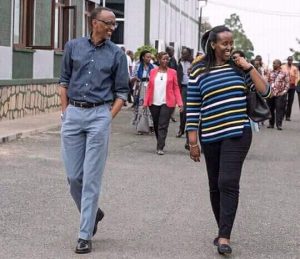
General Paul Kagame and his wife strolling without escorts? That is what the picture suggests.
But just before anyone concludes that Africa is a problem for itself and for the world, internet graphics and pictures from and about Rwanda cautions in favour of the possibility of a different Africa, a transformed Africa. It is not such a straight forward story because Paul Kagame, the General leading the turn-around in Rwanda does not pretend to be a democrat. What he subscribes to is development. What or where he gets the resources from to develop Rwanda is equally controversial. Even the United Nations has written a hefty report saying he is robbing the DRC to develop Rwanda.
Either because he is as tough as warlords come but tough in a progressive manner, no one has been able to stop him, including stopping him from finding his way around the term limit constraint. Is it possible that no one has been able to stop him because he is delivering development? But, what sort of development? Here are samples of Kagame’s developmental dosages:
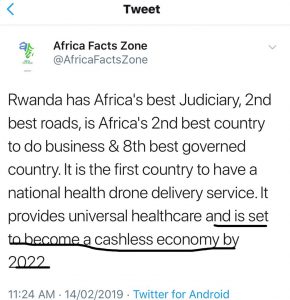
This is the summary
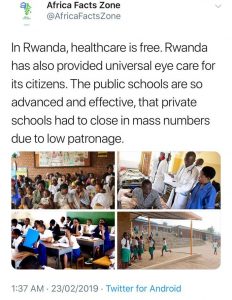 General Paul Kagame must still be a mystery to students of Happiness Studies, the new academic field transcending economistic cum statistical investigation of fulfillment. But, it is only Rwandese who can say if Kagame is delivering happiness or not becausedevelopment itself is not privileged. It is also a story told by whoever is using the concept.
General Paul Kagame must still be a mystery to students of Happiness Studies, the new academic field transcending economistic cum statistical investigation of fulfillment. But, it is only Rwandese who can say if Kagame is delivering happiness or not becausedevelopment itself is not privileged. It is also a story told by whoever is using the concept.
In the African context, the question is still how it is possible that Rwanda is experiencing development, however understood and by whomever as can be seen below too. Food for developmental thought, leadership and power in Africa, all in the context of globalisation!

